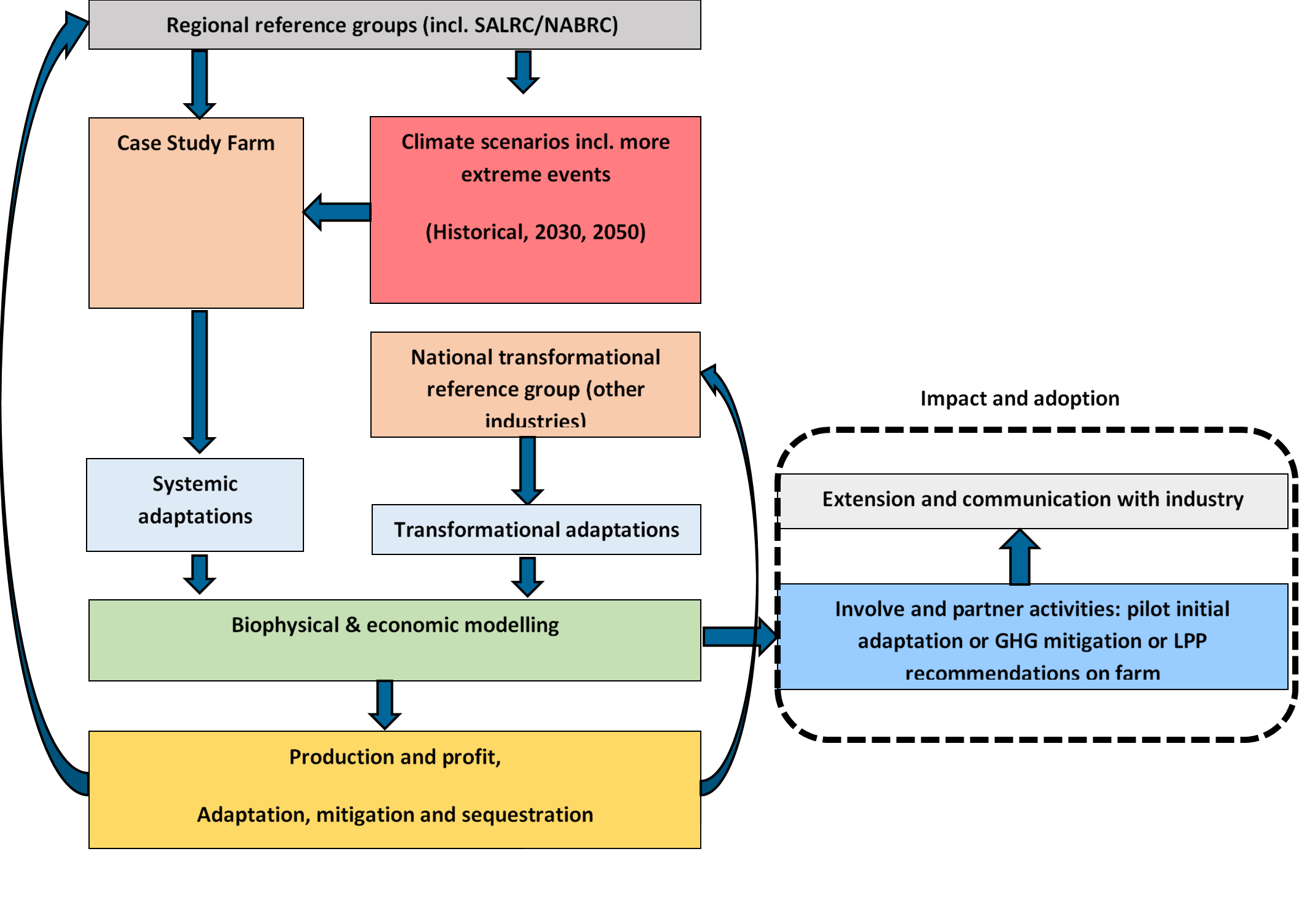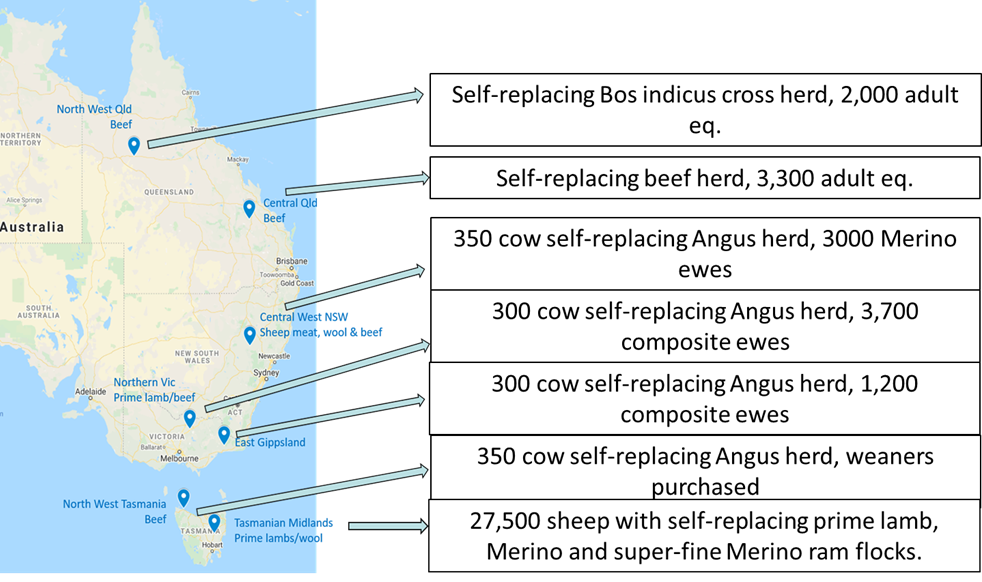
Changes in the climate of eastern Australia have occurred over the past two decades including increasing temperatures and heat waves, and declining rainfall in south eastern Australia, requiring a re-evaluation of livestock production systems. The NEXUS project explored the connections between profitability, productivity, greenhouse gas mitigation, carbon sequestration and consumer perceptions of livestock businesses in an increasingly variable climate. With funding from Meat & Livestock Australia's Donor Company, University of Melbourne, University of Tasmania and CSIRO, the NEXUS project was run from March 2020 – June 2023. It was a multi-party program of collaboration across the Livestock Productivity Partnership, including the funding organisations, University of Southern Queensland and University of New England.
Integrated assessments of seven farm case studies from Tasmania to north Queensland were conducted to identify systems adaptations that are profitable, environmentally sustainable and targeted towards future market opportunities. A reference group made up of local farmers and consultants in each region guided the research teams, to ensure that the systems and adaptation options examined, were relevant and findings were robust.
A transdisciplinary research approach was used, using farmers and consultants, farm systems modellers, farm economists and social scientists.
The impacts of future climates in 2030 and 2050 were explored, as well as opportunities to adapt.
Adaptation options explored:
Pathways for livestock businesses to adapt to the changing climate and reduce greenhouse gas emissions were explored as:

| Name and institution | Role |
|---|---|
| Dr Brendan Cullen (UM) | Project leader, farm systems modelling in Vic, NSW. |
| Prof Richard Eckard (UM) | Leader Mitigation/Sequestration theme |
| Dr Alexandria Sinnett (UM) | Leader Farm system economics |
| Prof Bill Malcom (UM) | Farm system economics |
| Dr Saranika Talukder (UM) | Farm Systems Modelling |
| Prof Ruth Nettle (UM) | Social research |
| Dr Marg Ayre (UM) | Social research |
| Nikki Reichelt (UM) | Social Research |
| Dr Paul Cheng (UM) | Animal science, adaptation options |
| David Cobon (USQ) | USQ Leader, Farm Systems Modelling |
| Dr Duc-Anh An-Vo (USQ) | Farm Systems Modelling |
| Dr Thong Nguyen (USQ) | Farm Systems Modelling |
| Assoc Prof Matt Harrison (UTas) | UTAS Nexus leader, farm systems modelling |
| Dr Lydia Turner (UTas) | Social research |
| Dr Karen Christie (UTas) | Farm Systems Modelling |
| Peter Ball (UTas) | Producer engagement |
| Dr Alison Hall (UTas) | Social research |
| Dr Nicoli Barnes (UTas) | Social research |
| Franco Bilotto (UTas) | Farm Systems Modelling |
| Dr Di Mayberry (CSIRO) | CSIRO Project leader, farm system modelling |
| Dr Chris Stokes (CSIRO) | Farm Systems Modelling |
| Dr Adam Liedloff (CSIRO) | Farm Systems Modelling |
| Martin Amidy (ANU) | Farm system economics |
| Dr Lindsey Perry (QDAF) | Producer engagement |
| Dr Tom Davison (UNE) | LPP Coordinator, transformational adaptation options |
NEXUS conducted integrated assessments of farm case studies in regions from the North of Queensland to the Midlands of Tasmania to identify systems adaptations that are profitable, environmentally sustainable and targeted towards future market opportunities.
The case study farms were in the following regions:

The FutureSheep project in Western Australia is examining case studies using similar approaches: https://www.agric.wa.gov.au/climate-change/future-sheep-climate-adaptation-ensure-sustainable-wa-sheep-industry
The NEXUS hosted a series of webinars from leading scientists focussed on identifying longer-term transformative level adaptation options. Some of these options were then modelled on the case study farms to inform the development of R&D priorities that are longer term and higher risk but with a view to delivering transformational level change to the industry and its capacity to adapt to future climate scenarios.
Click webinar title to view slides.
A webinar providing an outline of the project and snapshot of results from case studies around Australia was held on 15 June 2023.
NEXUS Project Webinar Slidepack
For more information email Brendan Cullen or contact him by phone on +61 03 8344 8028.
The Nexus project was funded by Meat & Livestock Australia's Donor Company, University of Melbourne, University of Tasmania and CSIRO.
